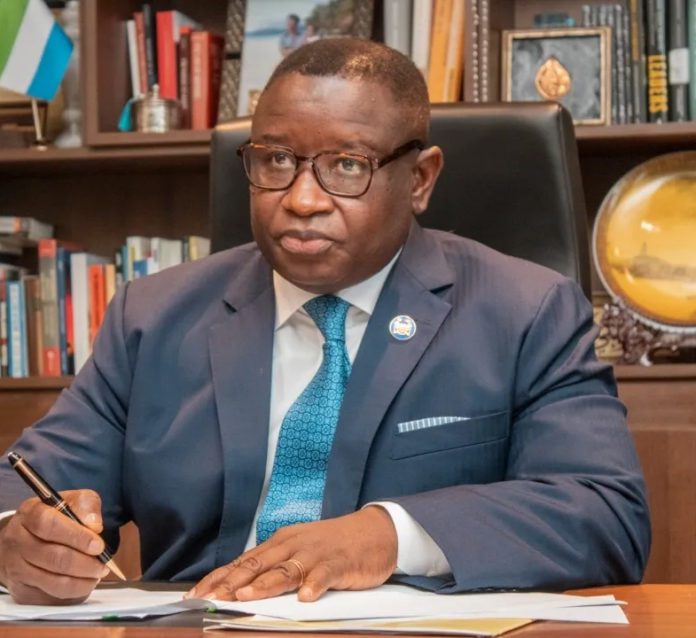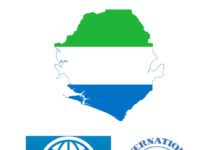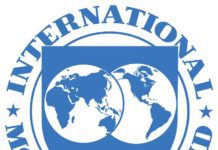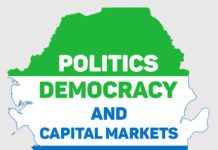

Enhancing Presidential Governance in Sierra Leone: A Call for Simplification
By Mahmud Tim Kargbo
Even if his State House operation is navigating the intricacies of Sierra Leone’s diverse landscape, a president cannot singularly dictate every decision from the Oval Office. The framers of our nation’s governance were clear in their vision of how the presidency should operate. This requires reforming the activities of the presidency to ensure that President Bio recognises the profound impact of his actions, setting precedents for future leaders. It’s a responsibility of stewardship.
In today’s Sierra Leonean executive branch, this means granting cabinet ministers greater autonomy. President Bio must avoid centralising all decision-making within the State House. The trend of consolidating decision-making and operational responsibilities in the State House should be curbed.
However, for such delegations to thrive, Sierra Leoneans must shift their perception of where ultimate responsibility lies. If a cabinet minister makes an ill-advised decision, the President should rectify it, and the system should adapt accordingly. Yet, the president should not be held accountable for every decision made across every corner of his administration. Such an expectation would burden him with an insurmountable workload, akin to previous presidents who attempted to micromanage every aspect of governance—an impossible feat.
Delegation around President Bio, while necessary, may not suffice. I propose that a significant reduction in its scope can only resolve the overwhelming demands of the presidential role. This could make it clearer what the president’s official duties are (like protecting the country and getting people to agree on important laws, which require the president’s special skills) and what its official duties are (like visiting historical sites, pandemic-related events, or hosting diplomatic guests). The latter category might be outsourced to the vice president.
President Bio could redefine the role of the First Lady, entrusting her with more ceremonial duties and diplomatic engagements. The Chief Minister could also assume some responsibilities currently on the President’s desk. Given our current circumstances, President Bio can only succeed if he concentrates relentlessly on a few well-defined objectives. He needs to emphasise that his time and energy are finite resources, and the nation faces significant challenges. While he deeply cares, certain tasks are better suited for others. Sierra Leoneans hired him for a distinct purpose.
It may be challenging to envision a Sierra Leonean president expressing such a candid message to the public. This could be an opportunity for Bio, albeit unintentionally, to address a long-standing issue. Some of President Bio’s unorthodox actions have garnered criticism, but they have also shown his willingness to defy norms. Perhaps this can inspire Sierra Leoneans to appreciate his transparency, humility, and commitment to essential work.
Critics in the media may be sceptical, and opposition parties might accuse the president of evading his duties. However, the Sierra Leonean people could welcome this candid approach, valuing the president’s dedication to meaningful work.
Another aspect President Bio could consider relinquishing is his perceived hands-on role in the legislative process. This task was not part of the framers’ intentions, and it may undermine rather than enhance his effectiveness as a catalyst for cabinet action. The legislative process often puts the president in a precarious position. Initially, he started in the executive branch, but this distances him from the legislative center. If he tries to engage solely in the ‘process’ without delving into the specifics of the legislation, members of Parliament may express discontent. As the bill progresses through the executive branch, it becomes more moderate, leading to accusations that the president lacks principles.
If the President refrains from intervening at every juncture, it would compel the Executive Branch to take the lead in legislation. This would ease pressure on the president and align with the framers’ original intent for the Constitution. The president could then reserve his political capital for the final stages of the process, where many of the contentious issues have been resolved. He would no longer engage as one of many negotiators, but would keep his stature as the voice of the nation.
Bio’s presidency is currently facing significant challenges. Like their predecessors, Sierra Leonean presidents often struggle when they fail to fully grasp the complexities of the government they inherit. There is a propensity to emphasise a president’s communication skills in an era of nonstop media coverage, sometimes at the expense of governance proficiency. However, presidential failure ultimately hinges on the ability to address real challenges, not just on rhetoric, regardless of how inspiring or offensive it may be.
Modern presidents, driven by mass communication, often mistake spin for reality. They are chosen not by experienced elected officials but by enthusiastic activists and party electorates who prioritise inspiration and entertainment. The prevalence of mass communication makes presidents believe that the same strategies that got them elected will work in governance—more rallies, speeches, social media, and television advertising.
Yet, reality remains paramount, and spin has its limitations, even in the era of social media. Sierra Leoneans, particularly those facing economic hardships, demand tangible results from their government. When poverty is rampant, even staunch government supporters question, “Where is the government?” For most Sierra Leoneans, the president embodies the government.
Bio’s government has faced criticism for its response to economic challenges and its inability to fulfill promises of economic improvement. His popularity has suffered, and his “New Direction” agenda, including significant changes to law enforcement institutions, has faced setbacks.
One area where Bio’s government has fallen short is its inability to handle criticism and protests with courage. This failure reflects a broader pattern of inadequacy in the administration, and it’s a lesson that should have been learned from past administrations.
President Bio should expect the reactions to his actions more effectively. His administration has struggled since its inception.
In conclusion, enhancing Sierra Leonean presidential governance involves simplifying the presidency’s role, fostering collaboration, and focusing on critical tasks that directly benefit the nation. While Bio’s Presidency faces challenges, it has the potential to address long-standing issues and steer the country towards a more prosperous future. The reality, not just words, should guide presidential actions, and the Sierra Leonean people deserve effective governance that prioritises their well-being and aspirations.




